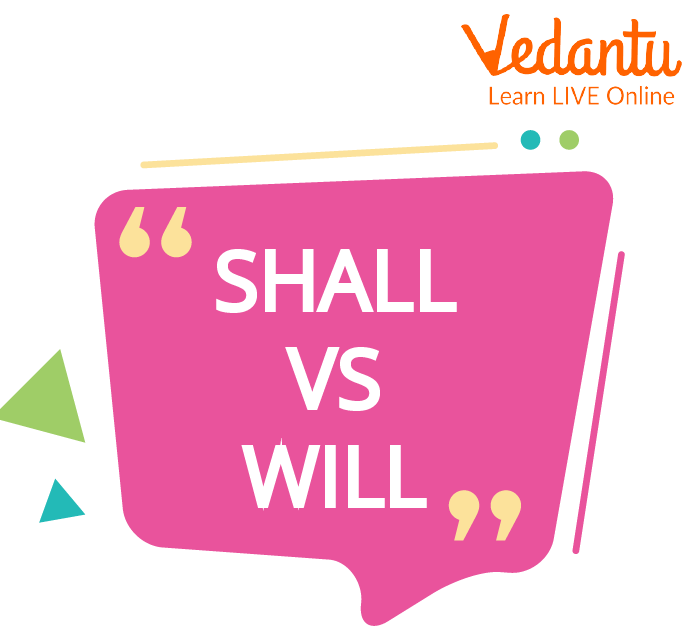An Overview of Class 2 English Grammar Ncert Solutions Will Be And Shall Be
FAQs on Class 2 English Grammar Ncert Solutions Will Be And Shall Be
1. What do 'will be' and 'shall be' mean in a sentence?
The words will be and shall be are used to talk about actions or states that are going to happen in the future. They tell us that something is not happening now, but will happen later. For example, if you say, "I shall be happy," it means you will be happy in the future.
2. When should a Class 2 student use 'will be' and when should they use 'shall be'?
As a simple rule for Class 2 English grammar, you should:
- Use shall be with the first-person pronouns, which are I and we.
- Use will be with all other second and third-person pronouns like he, she, it, you, they, and any names (e.g., Rohan, Priya).
3. Why do we often use 'shall be' with 'I' and 'we'?
In formal English grammar, using shall be with I and we simply states a future fact. Using will be can add a feeling of determination or making a promise. For a Class 2 student, the most important thing to learn is that shall be is the traditional and correct partner for I and we when talking about the future.
4. Can you give some simple examples of sentences using 'will be' and 'shall be'?
Certainly! Here are some examples to make it clear:
- Sentences with 'shall be':
- I shall be seven years old on my next birthday.
- We shall be visiting our grandparents next week.
- Sentences with 'will be':
- He will be playing football tomorrow.
- She will be a doctor when she grows up.
- It will be a sunny day.
5. Is it always wrong for me to use 'will be' with 'I' or 'we'?
No, it is not always wrong. While the CBSE syllabus for Class 2 teaches the basic rule of using shall be with I and we, you will often hear people use will be instead. Using 'I will be...' often sounds like a strong promise or decision. For your exams, it is best to stick to the rule of using shall be with I and we.
6. How do we form a sentence using 'will be' or 'shall be'?
To make a correct sentence, you place will be or shall be after the subject (the person or thing) and before the rest of the sentence. The structure is: Subject (like I, you, The cat) + will be / shall be + describing word or action. For example: "She will be late for the party."
7. What kind of time do 'will be' and 'shall be' show in English grammar?
The words will be and shall be are important helping verbs that show the future tense. The future tense is used to describe events that have not happened yet but are expected to happen later. Whenever you see these words, you know the sentence is talking about something in the future.
























